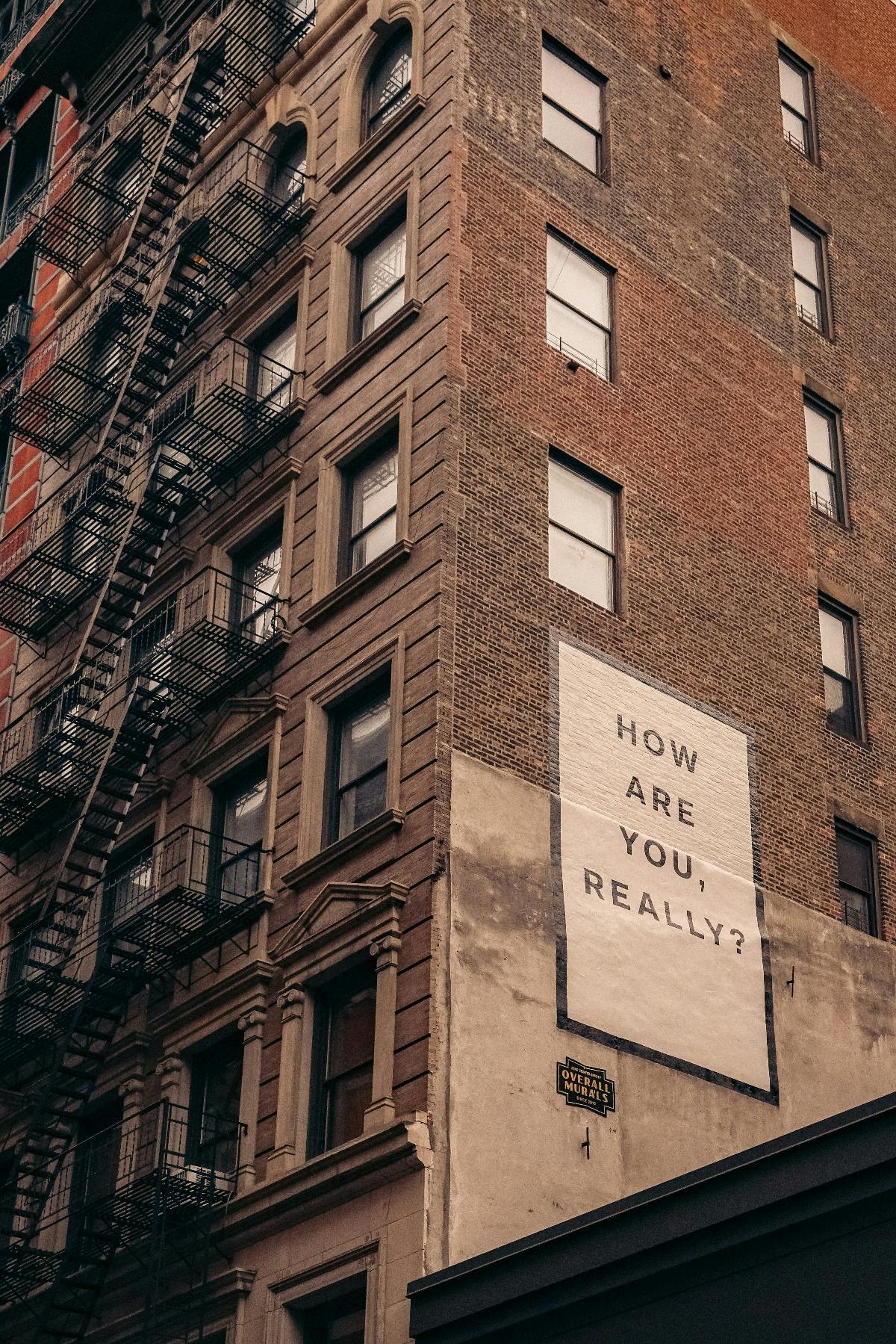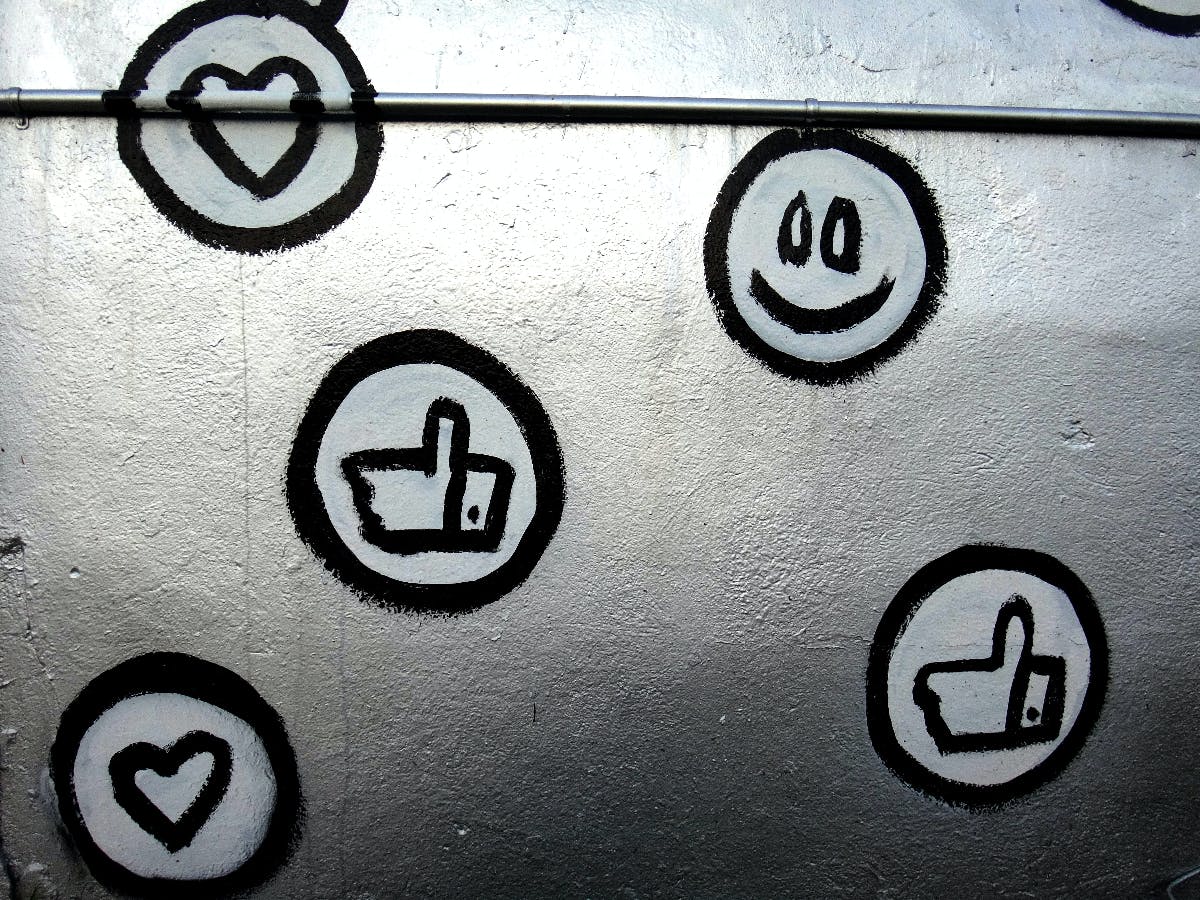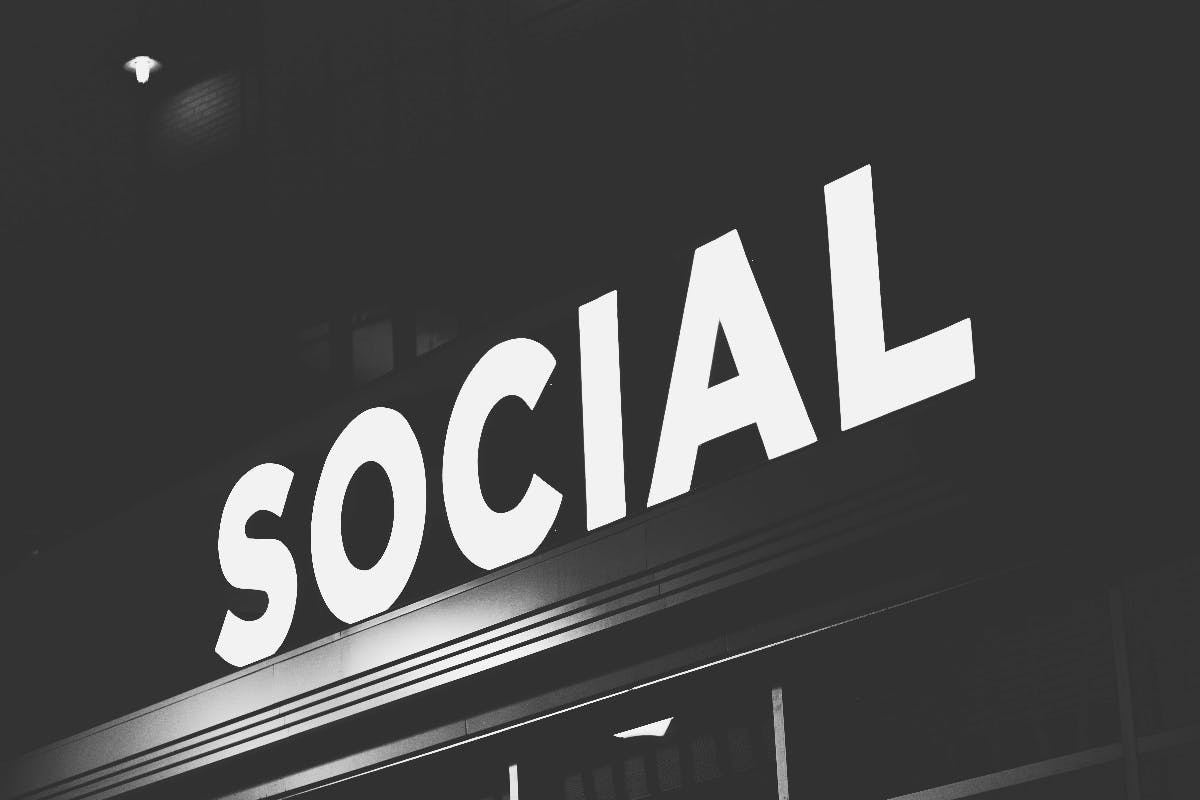
Social media and the internet have raised the level of keeping up with the Joneses to an almost manic level. Trying to outdo, out buy, out own, out life those posting about their fabulous lives is not only crazy, but it’s also causing severe mental health issues for many people. And, that lot of people includes a huge steaming bunch of young people. So how do you stop comparing yourself on social media? Let’s first take a deeper look into how we got here in the first place.
Who are the Joneses, and why is everyone always so damn eager to keep up with them?
Once upon a time, in the days before the internet, the influences of the Joneses, that mythical family with all the good stuff that set the standard for what the rest of us are missing and must have, extended mostly to the next block. Perhaps it was the big house on the corner that had the best Christmas light display, the three cool cars, or the family vacations to exotic places. You’d pass their house on the way to work, the market, school, or the abattoir, look at it with envy and then look at your own life and see it as somehow less than.
The Joneses have always been there, but with the advent of the internet and the pulsing, in-your-face presence of social media, the Joneses are no longer one block over; they are everywhere.
Not only are they everywhere, but they’re also now every age, social/economic class, grade level, and food group. If you were to take social media at face value, everyone but you is on a better vacation, eating better food, going on better dates, and living a better life.
Social media and the internet have raised the level of keeping up with the Joneses to an almost manic level. Trying to outdo, outbuy, out own, outlive those posting about their fabulous lives is not only crazy, but it’s also causing severe mental health issues for many people. And, that lot of people includes a huge steaming bunch of young people. So how do you stop comparing yourself on social media? Let’s first take a deeper look into how we got here in the first place.
The Joneses are Getting Out of Hand
Keeping up with the Joneses was a gag-a-day style comic strip written by Pop Momand that ran from March 13, 1913, to April 18, 1938. It depicted the day-to-day life of the McGinis Family trying to match pace with their never-seen neighbors, the Joneses. It was a domestic comedy about social climbers and the wacky antics of trying to be something you’re not.
The strip lasted only 25 years, was never wildly famous, and had limited merchandising. However, it did give us the phrase “keeping up with the Joneses,” which is still part of our modern parlance, although taken to a level that Pop Momand could never have imagined.
In those days, the Joneses were the neighbors; now, however, because of social media, the Joneses everyone is trying to keep up with include celebrities, superstar athletes, and business moguls. A clot of uber-rich, powerful, and unmatchable folks that, nevertheless, ordinary people try to emulate.
Looking to better your station in life is fine; the American dream, as it was once called, is about having the comforts in life that add variety and spice. Living under the American dream meant more than just going to work, coming home, having dinner, going to bed, and getting up to do it all over again the next day. There were suburbs to live in, better cars to own, vacations to go on, and the finer things in life that made working the 9 to 5 worth it.
The Joneses and keeping up with them has become distorted. We see the Joneses and their lives splashed all over Facebook, Instagram, and other social media sites. It looks like the Joneses never have a bad day, never do a ho-hum thing or eat a meh meal, or go on an average vacation. When viewing social media, you’d think everyone is an Oligarch and every minute of their lives is front-page news.
It’s not true.
It’s so not true that people are running into mental health problems because they believe that social media is entirely accurate and that their lives are worthless.

The Joneses are Making Us Mentally Ill
Sigmund Freud talked about a particular kind of envy that involved a certain male appendage. Yes, the duodenum, that’s right, keep it clean. It would be interesting to hear what he would say in these modern times dominated by social media. I’m sure it would have something to do with the length of one’s followers list.
The modern envy is Facebook envy, and studies have shown that this type of envy directly links to depression.
What is Facebook envy? Simple: It is the painful feeling one gets when one realizes other people's lives on Facebook are more interesting, joyful, and worthwhile than theirs. Facebook users frequently compare their daily life with what others post on the platform.
The operative words in this particular envy are these: “... other people’s lives ON FACEBOOK …” People are becoming depressed because:
- A) They think the lives they see other people living on Facebook are accurate and represent their real, entire lives.
- B) They compare their own authentic lives, with all the bumps and bruises, failures and mistakes, to the highly edited lives they see on Facebook.
Studies have also shown that Instagram is even worse for mental health. People are constantly bombarded with images of overnight business successes and fitness gurus with perfect bodies, and they feel inadequate in their own lives. This leads directly to depression.
Mental Health Issues Sparked by Social Media Lead to Uncontrollable Debt
When Facebook envy is examined further, the effects become even more nefarious. People get so caught up in the worlds posted online they choose to do anything to keep up. Often this results in vast amounts of money being spent on clothes, cars, meals, and vacations just so that they can post on social media and have their lives appear to be as wonderful as others and be envied.
Sadly, this becomes a vicious cycle; more money is spent to have their lives appear a certain way, leading to massive debt and more depression. The cycle continues when the poster thinks that all would be well if they could just achieve some level of perceived success. However, that level of success is never achieved because they have acquired crushing debt, which causes a deeper level of depression, and the cycle spirals downward.
How is This Possible?
If you’re not deeply into social media, posting only random pictures of birthdays, or your dog getting its pilot’s license, then this whole thing may seem unbelievable to you. If you don’t compare your life to those on social media, yes, this entire situation could seem like a bad movie script.
But, think about this: according to the Pew Research Center, 69% of adults and 81% of teenagers use social media for several hours every day. Of those numbers, it is estimated that 73% are vulnerable to social media envy. Why? Because social media is built to activate the user’s pleasure centers. This part of the brain releases dopamine, a “feel-good chemical” linked to pleasurable experiences like sex, food, social interactions, and watching dolphins sing karaoke.
People who use social media less often or have fulfilling in-person relationships, or are happy with their lives the way they are, can and do jump on and off social media and feel no lasting or dangerous effects of envy.
For the rest, they grow jealous of how others’ lives are presented, which sends them into depression, competition, and other unhealthy reactions. These people believe the posts they see are realistic representations of other people’s entire lives, and it just destroys them.

The Power of Likes
Here’s something else that will make you scratch your head, most people who get depressed while scrolling Facebook or other social media outlets know that social media is making them sick, and yet they return.
It’s true. Instead of haunting the alleys and clubs of a city asking people for meth, they’re trolling the pages of Instagram, hoping to score some likes.
See, when posting on a social media site, the outcome of the response to the post is unpredictable, and that keeps them coming back. It’s the same psychology that’s at work in a casino. If a person is told, if you play that slot machine, there is never even a scintilla of a chance that you will win money, they would walk away. But no one says that. So, the patron sees the slot machine, sees others around them getting payoffs, and thinks, well, maybe there’s a chance. It is this potential of future reward, as psychologists say, that keeps the machine in action.
They post something on Facebook, and they don't know if it will get likes. Likes tickle that brain center, which spills dopamine. Maybe the post will get no likes; maybe it will go viral, the big payday. That future reward keeps them coming back.
Checking would be one thing, but the competition is still there. They return to check their like status and, just to be sure, they check with the Joneses. Well, the Joneses have more likes, and then the cycle begins anew. All the fears of missing out, not being part of the club, being picked last for the team, all the latent worries and fears attached to being good enough, funny enough, wealthy enough, are brought into the mix, and depression, debt, sickness and sometimes even suicide comes into play.
No, Social Media is Not Evil
If you’re reading this and think social media is evil and should be done away with, you’re missing the point. Social media is not evil. It can connect the world, make people laugh, learn about other societies, fight against an immoral war. Social media has so many good parts and some just plain silly parts. It is not evil. Hell, without social media, we wouldn’t know that we could has cheezburger too!
The tricky part is realizing that social media can be like any kind of addiction. When you allow the site, the substance, to take control, then you’re lost. In this case, the venue isn’t the problem; the reaction to it is.
The problem arises when people look at these sites and compare their lives to what they see on the screen. Comparing oneself is never a good idea. Comparing your life to another’s life, especially one that you see only carefully curated parts of, such as the ones you see on social media, is just stupid.
If you look at someone else’s life and you think, well, I’m better than that, you run the risk of losing your humanity, your empathy, and your heart. If you compare your life to someone who you perceive as above yours, you’re missing the wonderful things in your own life and jumping into a race that you can never, ever win. And we know what that race can lead to.

How to Stop Comparing Yourself On Social Media
Leaving the Joneses behind isn’t going to be easy. The deeper you are into social media envy, feeling shame about your life, or wishing you had the life that’s presented on some of these sites, the harder it will be to extricate yourself. But it’s not impossible. Here are five tips on how to let the Joneses go.
1) A perfect person, family, or life does not exist
The perfect life, person, family, job, etc., may be represented on social media, but, again, that is a curated site. Behind the scenes, you have no idea what that person’s life is truly like. Enjoy the lovely pictures but keep in mind that perfection simply does not exist.
2) Don’t be afraid to unfollow, especially the overtly materialistic
Unfollowing seems to be the ultimate move these days. Being unfollowed can leave some people trembling in a corner. But maybe it’s time to examine who you follow and why. Ask yourself what you are gaining from seeing their life shoved in your face every day. Are they making your life better, are they making the world better, or are they pushing a materialistic lifestyle that is subtly driving you insane?
Unfollowing is freedom for you. It defines the images and the ideas that you want to connect with. It sets the tone for your daily scroll on social media. If you look at the feed of certain people and you get upset or jealous, why do that to yourself? Stop. Unfollow and feel better. Stop the envy and work towards better mental health.
3) Live within your means and know that possessions are not a measure of self-worth
Keeping up with the Joneses, as we have seen, can lead to mindless spending and crushing debt, and for what? So you can have what someone else has, so you can be like someone else? In that scenario, where are you? Where is the true you? Where are your thoughts and dreams, your tastes and ideas?
Who you are and what you bring to the world should not be a mirror image or a forced simulacrum of someone else. Your friends value you. They value your company, your mind, your laugh. And, if they only value you because of the car you drive or the number of followers you have, are they indeed your friends? If you’re measuring your self-worth through the lens of social media, you need to rethink that immediately. It’s not doing you any good.
4) Know yourself, what you value & what is important to you
“To know thyself is the beginning of wisdom.” - Dumbledore. Kidding, it was Socrates.
Look, you know who you are and what you value. You know right from wrong and where to draw the line. Sometimes it’s easy to lose sight of all that when you see the dude who is a total jerk getting all the good stuff in life. Or the woman in the office with the obvious boob job getting all the attention, especially when you know she’d believe that quote WAS by Dumbledore.
Being true to ourselves is more challenging when there is more input. When we can see a million pictures a second plastered against our eyes, which leads us to think maybe they are doing it right. They are not you. Only you are you; only you can live your life and know what is of actual value to you.
Have fantasies, enjoy the pictures, say wouldn't it be cool if … all that is fine and human. Just remember that there are thousands and thousands of images behind the scenes of those “perfect people” spilling coffee on their shirts as they drive to work. Look, enjoy, laugh, and like, but don’t envy and don’t ever lose sight of what you value in your life.
5) Stop Giving a Fuck
Empty that jar and give no more.
Stop putting so much time and energy, care and envy into what other people are buying, wearing, eating, where they are going, who they are seeing. That’s great for them. Look at your life and be thankful for the people in it, the experiences you have, and the meal you shared with that tight group of friends.
And, stop feeling the need to post it all. If you don’t care, then why should anyone else? You have to understand, you may get a like on that picture you’ve posted, but is that real? Do they really like it or are they thinking, I’ll like their picture, so they lime mine? Are you contributing to the cycle? Are you the cause of someone else’s madness?
The moment is happening while you’re in it. Posting that moment doesn’t mean it lasts forever; it won’t. So, ask yourself, while you’re about to take that selfie and then stop to post, then go back and check how many likes it’s getting, are you actually living that moment as it’s happening? Are you living your life, or are you giving it a cursory glance while you curate it for social media?

LIFE IS …
And you get to fill in the blank. It’s never going to be the same, and it’s not always going to be great. But, if you’re in it, living it moment to moment, and not living thinking how great this will look on social media, life may just be less stressful, void of unnecessary envy, free of needless debt, and filled with good mental health. You run social media, don't let it run you. Stop comparing and start living.

